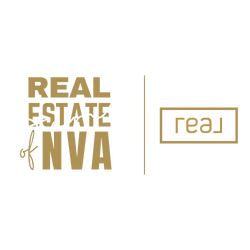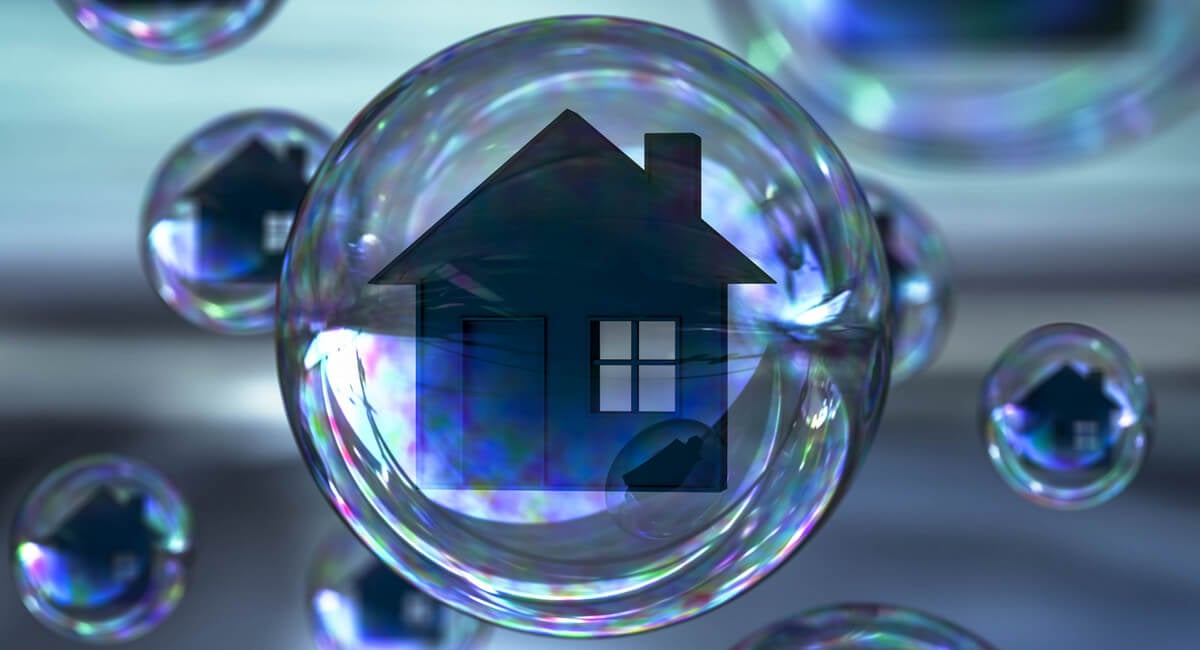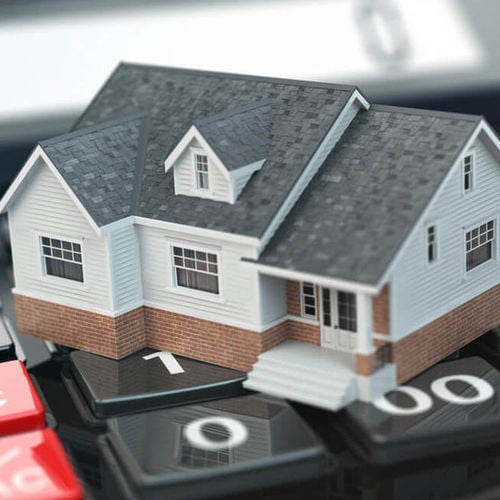A housing bubble is a major concern for homeowners, investors, and prospective buyers. When the bubble eventually bursts, you could lose an enormous amount of equity in your home or find yourself unable to sell a property.
Although it’s impossible to predict exactly when a real estate bubble will burst, you can protect yourself by learning the warning signs and planning ahead. You should understand what a housing bubble is, how it bursts, and what you can do to protect your assets during a market downturn.
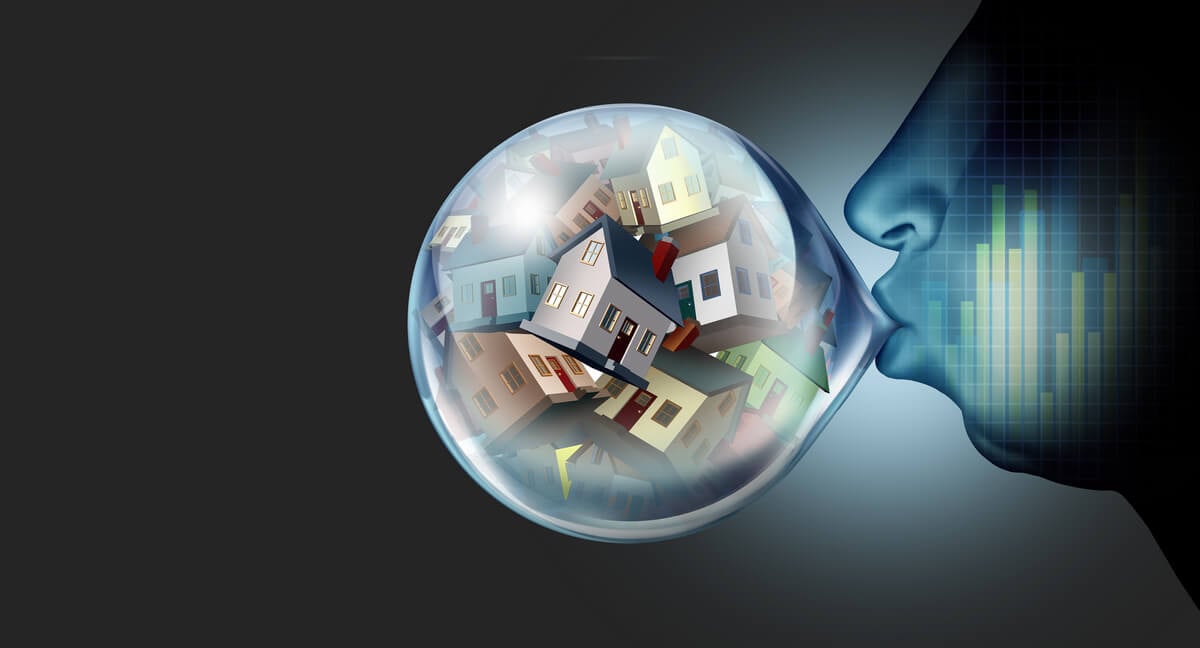
What Is a Housing Bubble?
A housing bubble is a steep increase in home prices that’s typically followed by a rapid collapse. Like a literal bubble, the market grows bigger and bigger until it suddenly pops.
There are many variables involved in the housing market, so a bubble doesn’t form for one singular reason. Instead, several factors contribute to the formation and eventual burst of a bubble.
A housing bubble usually starts forming after an increase in economic activity. When people have more money in their pockets, they’re motivated to buy their first homes or to upgrade to larger homes. If mortgage rates decrease, the activity in the housing market increases even further.
This rise in demand for housing results in increases in prices. Buyers have the means and motivation to make inflated offers, so sellers price their homes accordingly. Builders see the increasing demand and recognize their opportunity for profit, too, which leads to a surge of new home constructions.
Then, real estate speculators enter the market in droves to take advantage of the rising prices. They purchase properties with plans to flip and resell them in the near future for a profit. This further increases the demand in the real estate market and enlarges the bubble.
This growth can’t last forever, though. Eventually, interest rates will rise, and the economy will experience a downturn. Homeowners who purchased property at the peak of the bubble will face financial strain. Many will sell their homes, and some will go through foreclosure. There will be fewer buyers on the market due to rising unemployment rates and a decrease in disposable income. Now, the supply of houses outweighs the demand, and prices drop rapidly.
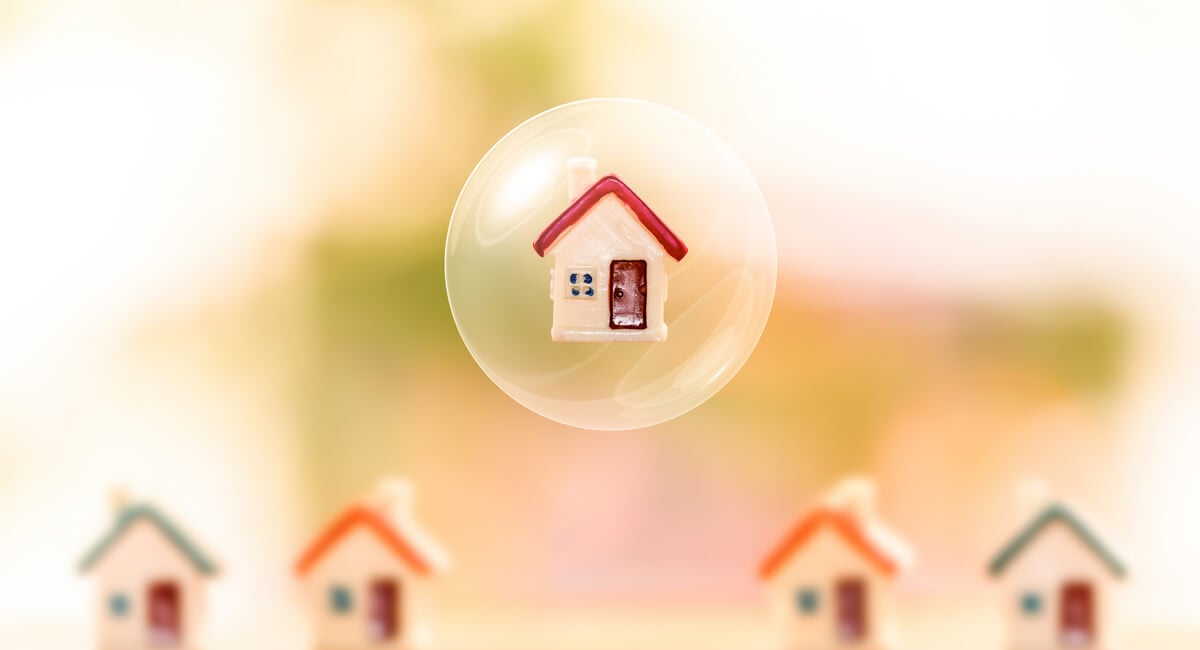
Signs of a Housing Bubble
No one can predict a housing bubble with complete certainty. The unpredictability of the market is exactly the reason that bubbles form in the first place. Everyone wants to enter the market before prices hit their peak, but this rush of activity contributes to the collapse.
Although you can never know exactly what will happen in the real estate market, there are some classic signs of a housing bubble that you can look out for. If you notice the signs of a bubble, you should act cautiously.
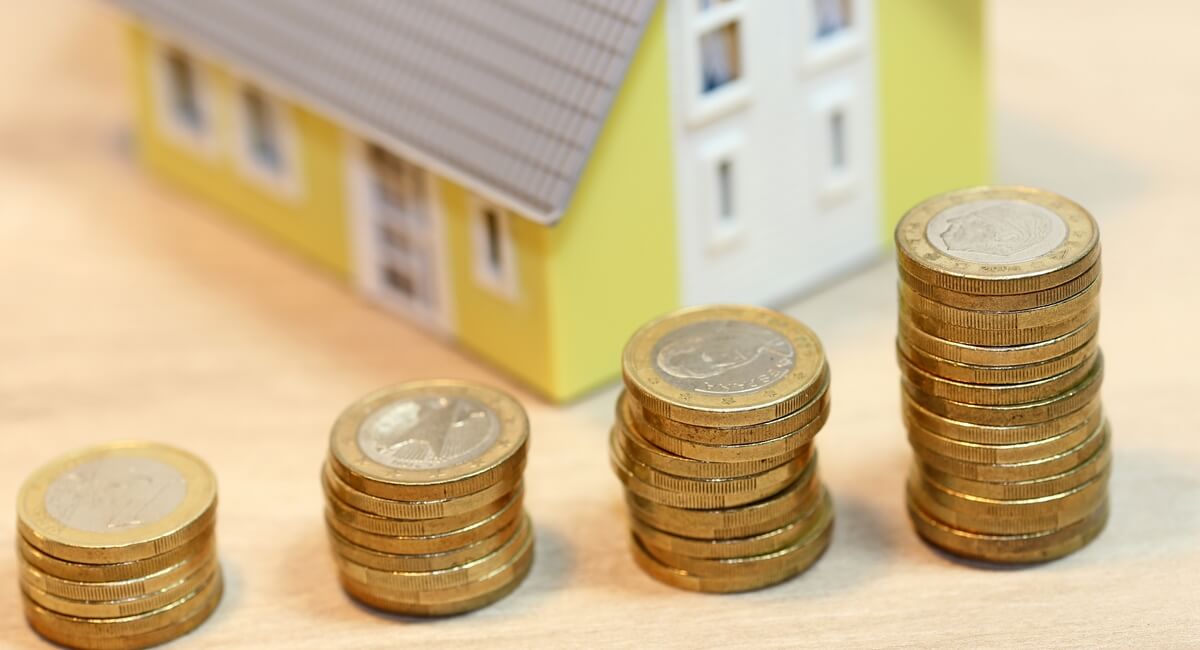
Skyrocketing Costs
A rapid rise in housing prices is the most obvious sign of a bubble. You might see a house sell for a hundred thousand dollars more than it was purchased for just a few years ago. Rent prices may increase dramatically alongside home values, too.
One of the most worrisome indicators of a real estate bubble is home prices increasing faster than wages. When buyers pour a higher percentage of their income into their houses, they’ll struggle greatly to make ends meet when the economy takes a downturn. This will result in more defaults and foreclosures, which will contribute to the collapse of the real estate market.
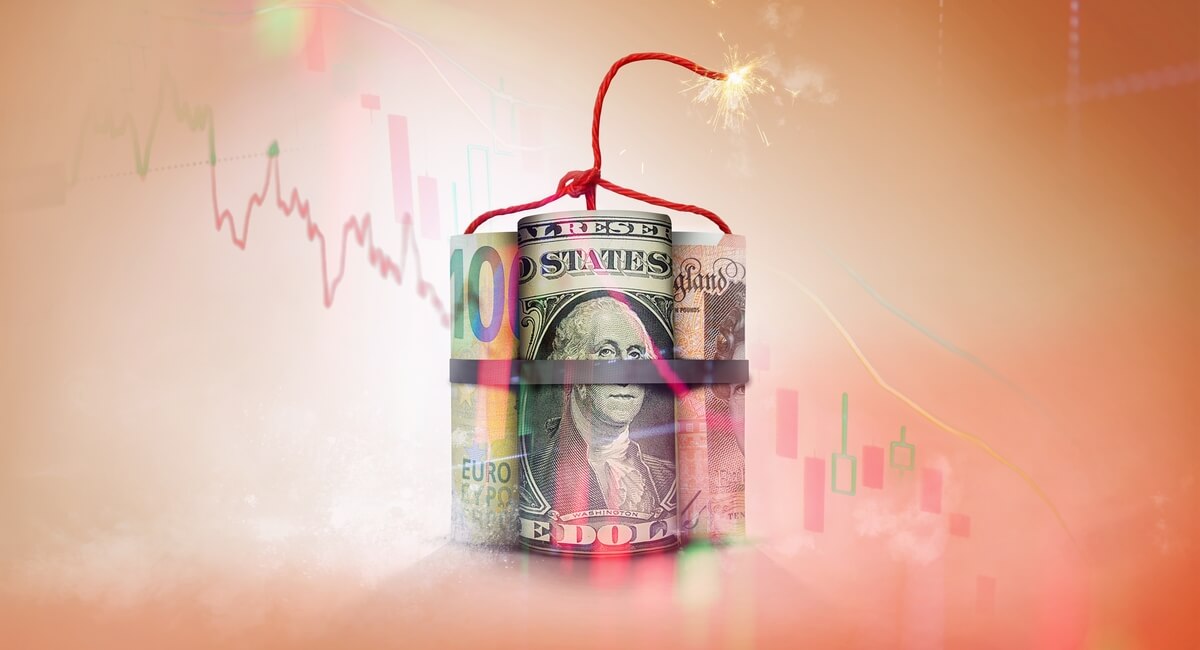
Speculative Buying
An increase in speculative buying can be a sign of a growing housing bubble. When investors see property prices rise, they start purchasing homes in hopes of turning a profit. You may see more properties being purchased by investment companies or houses being purchased and flipped in a short time frame.
Increased Construction
When the demand for houses increases, builders see the potential for profit in the real estate market and start constructing more homes. An increase in new builds in an area isn’t always an indicator of a housing bubble, but it often occurs alongside other warning signs. If developers overbuild, the excessive supply will cause home values to fall.
Risky Mortgage Lending
When the real estate market is booming, lenders may offer financing to buyers who have poor credit or small down payments. High-risk lending is not only a warning sign of a housing crash, but it can also directly lead to a real estate collapse. Risky lending practices can backfire terribly during an economic downturn. For example, banks providing subprime loans was one of the biggest contributors to the housing crash in 2008.
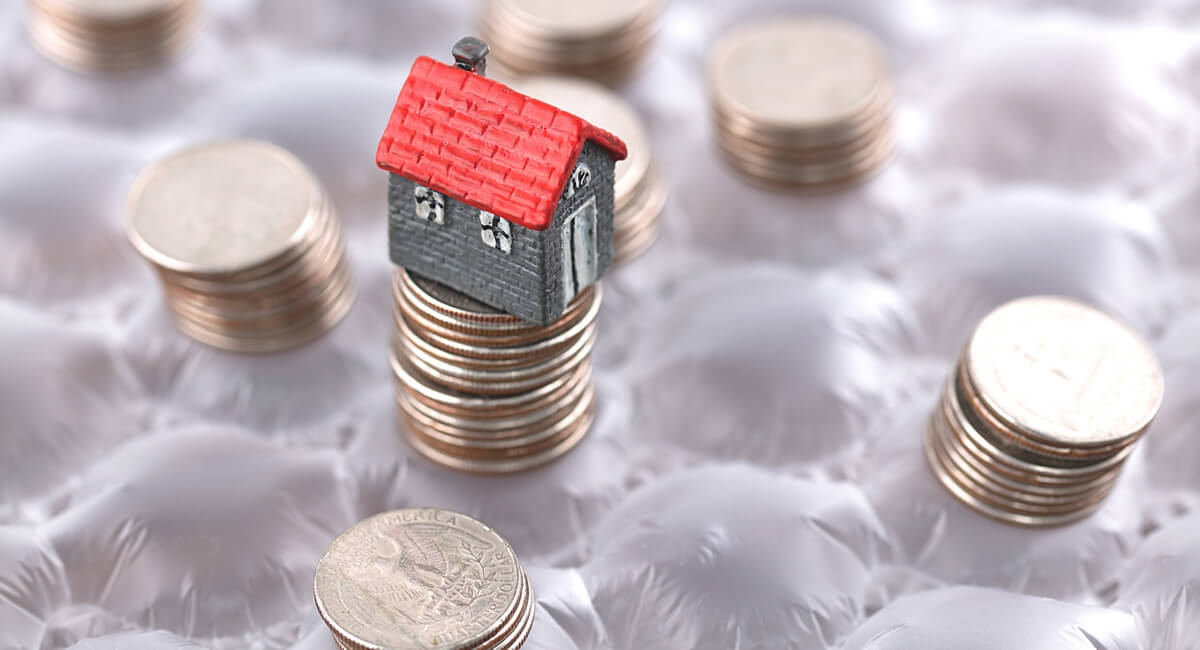
Rising Interest Rates
Rising mortgage rates can be a sign that a housing bubble is getting close to bursting. Buyers tend to back off as rates rise because homeownership becomes less affordable. With fewer buyers on the market, sellers drop their prices.
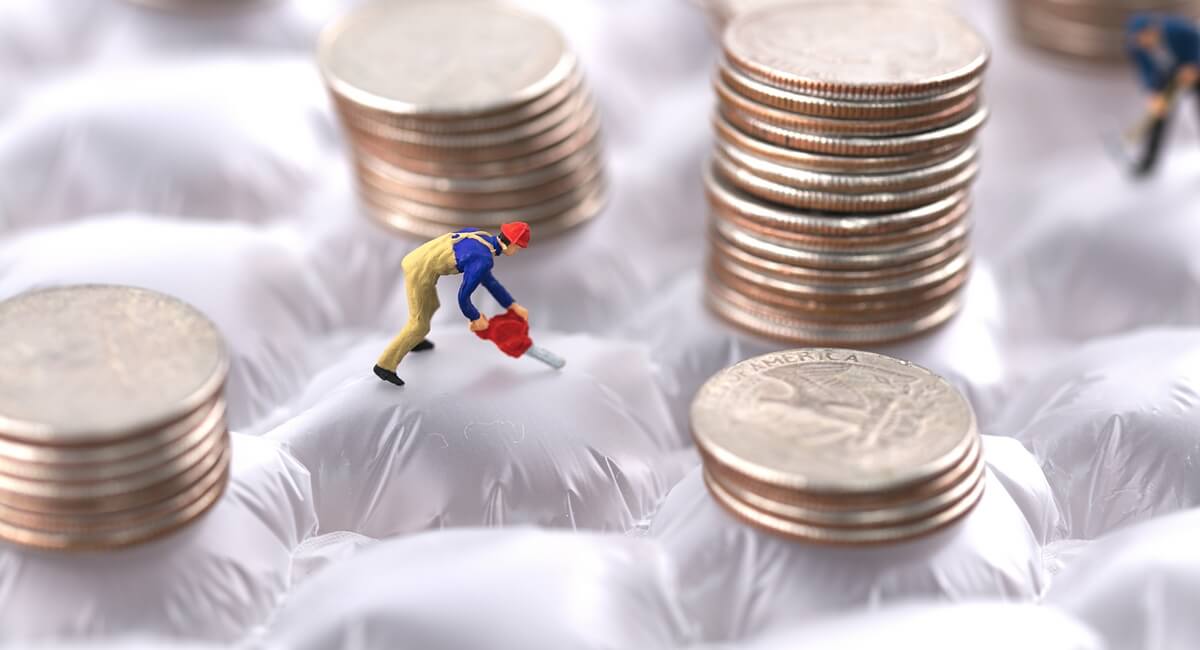
Plateau After Rapid Price Increases
Historically, housing bubbles have often burst after a period of rapid growth and then a plateau. Changes in economic conditions cause prospective buyers to hold off on purchasing property, and homeowners and investors start trying to sell their homes with little success. If you see home prices start to stagnate or decline after increasing dramatically, the bubble may be about to burst.

What to Do if You Spot a Housing Bubble
It’s natural to feel worried if you suspect that your area is experiencing a real estate bubble. However, you can avoid being negatively impacted if you plan carefully. Here are three tips for navigating a housing bubble with caution:
Avoid Entering the Market
Many investors try to predict the peak of a housing bubble and sell their properties to maximize their profits. Market conditions can become very unpredictable as the housing bubble swells, though. It’s usually better to wait until the market stabilizes to pursue any transactions. Additionally, if you sell your primary residence during a bubble, you then have to compete with all the other buyers in the market to purchase a new home.
If possible, try to avoid entering the real estate market during a housing bubble. Whether you’re purchasing your first home or an investment property, you face a significant risk of overpaying.
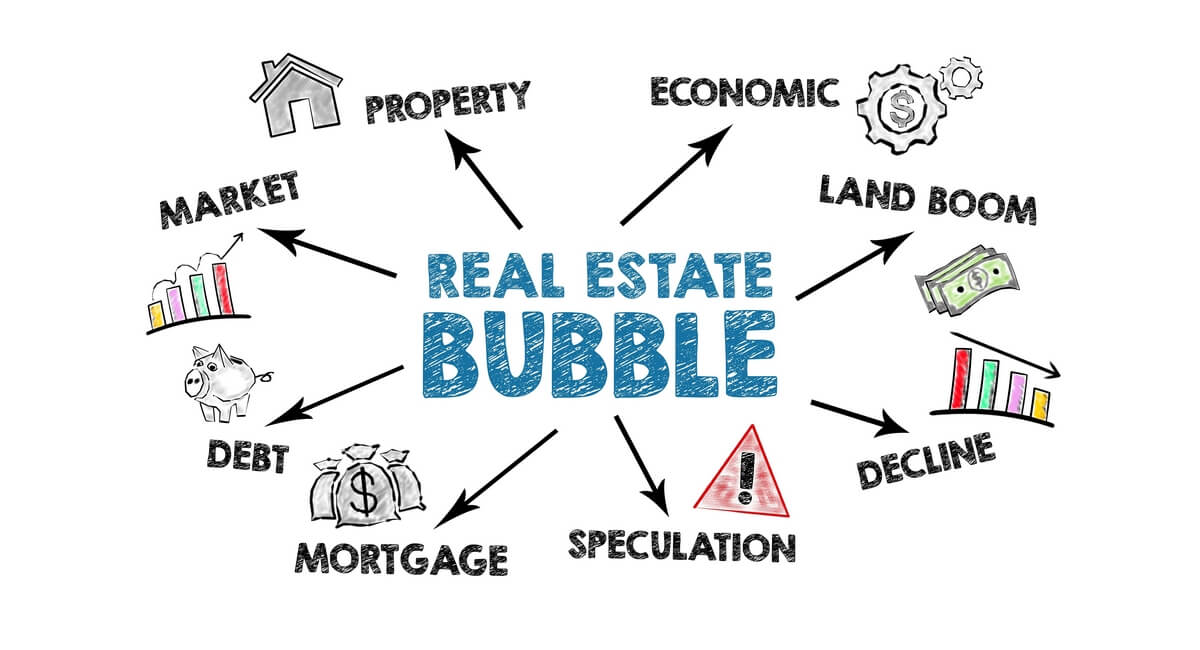
Build Your Emergency Fund
Losing your primary home or your investment property when a real estate bubble bursts can be devastating. You may have to sell the property at a loss if you can’t sustain the mortgage payments. At worst, you could face foreclosure.
A large emergency fund can hold you over if you lose your job or your rental income during an economic downturn. Try to build up an emergency fund of at least six months of expenses. Keep this money in a savings account that you can easily access if needed.
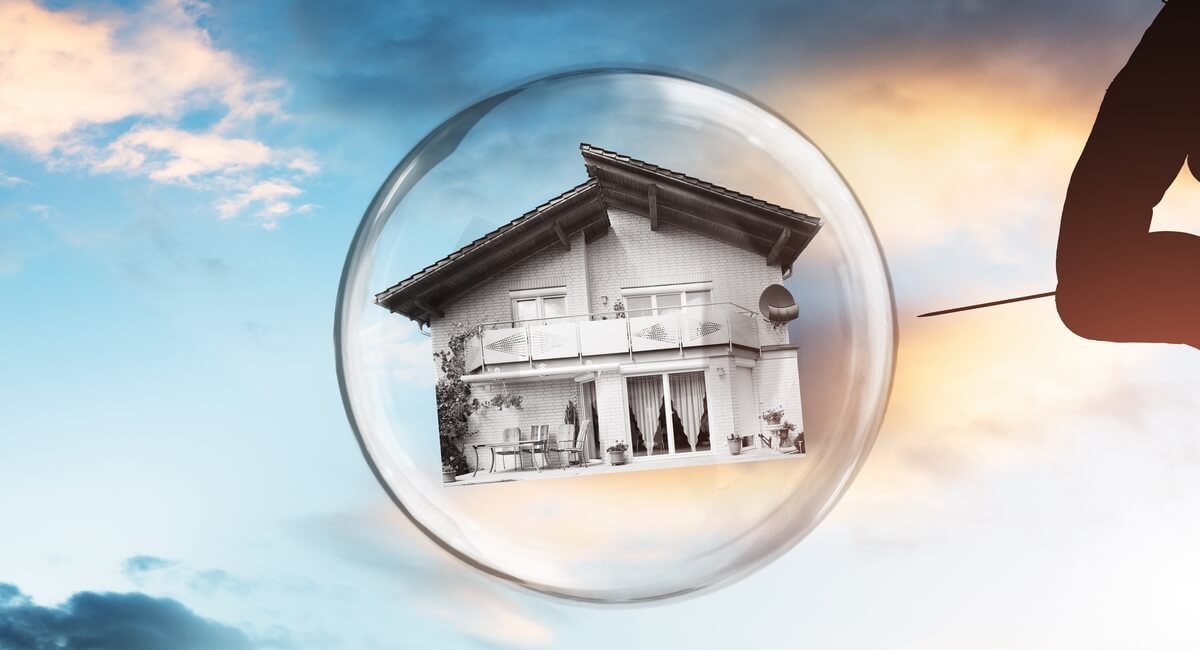
Bottom Line
Ignore the Hype
As the housing bubble grows, you may feel pressured to invest in new properties or sell your current ones. Fear of missing out on an opportunity causes people to act recklessly. Try to avoid making decisions based purely on excitement or anxiety. Even if everyone around you seems to be flipping properties and turning a profit, remember to stay calm and focus on the facts and numbers.
The real estate market will always rise and fall. If you spot the signs of a housing bubble, be very cautious about buying or selling. Real estate is an excellent long-term investment, but acting impulsively could have big consequences.
As always . . .
Be sure to check out the:
- Home Valuation Tool
- Reach out for your personalized Home Value Report
- Calculate your future mortgage
Don’t forget the Home Buying and Selling Guides !
Never miss an issue by subscribing below and I look forward to speaking with you soon about your free Home Preparation and Market Analysis consultation!

